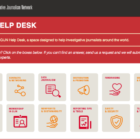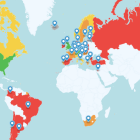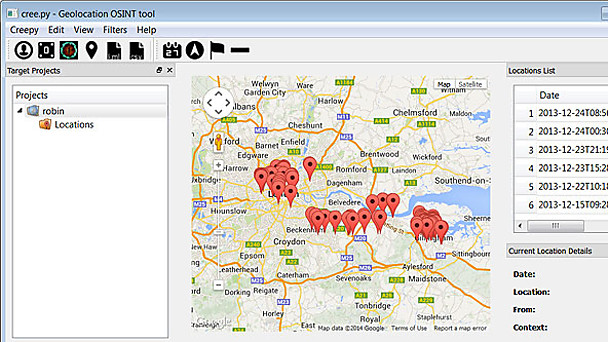tips & tools
GIJN Launches Help Desk
|
From GIJN’s earliest days, its global community has been rooted in a collaborative and generous spirit, with journalists around the world sharing ideas, sources, and stories. To help deal with the growing demand for assistance, GIJN has created a formal Help Desk to better marshal its resources and tap the expertise of its global network. The staff reached out to hundreds of trainers and experts who have spoken at GIJN conferences to create an international database of experts on investigative and data journalism.









